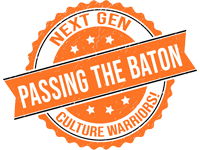
A little while back, we addressed the topic of “ableist language.” Yes, “ableist” is now a word—enshrined in academia at the highest level. Stanford’s Elimination of Harmful Language Initiative (EHLI) considers it offensive to use the term “stand-up meeting” to refer to a brief rendezvous, because people in wheelchairs are unable to physically stand, and therefore the term demeans them. Instead, we ought to use the substitute, “quick meeting.”

I spent a decent amount of ink analyzing “ableism,” because the whole concept struck me as an oddly far-fetched grasp at solving a problem that wasn’t there. But it turns out that “ableism” was only the first of several taboos on the EHLI wanted list—if you keep reading, you’ll find another category that’s much more commonly discussed than ableism: racism. I’m sad to report, however, that the EHLI’s stance on what counts as race-based offense makes no more sense than their stance on ability-based offense.
Exhibit A: “Blackbox.” According to Stanford, the preferred phrases would be “hidden,” “mystery box,” “opaque box,” or “flight recorder,” because the word “blackbox . . . assigns negative connotations to the color black, racializing the term.”
The glaring assumption in this line of reasoning is that the color’s negative connotation is racial in character. I will agree with one thing: there are things in the world that are black and have negative connotations, such as nighttime, mold, or assassin clothing. However, I decidedly disagree that referring to a black thing as a bad thing automatically invokes race. Night-time is black, and many people are scared of the dark. Are they scared of the dark because it reminds them of African skin tones and they hate African people? No! They’re scared of the dark because dark is the absence of light, and the less you can see your surroundings, the more uncertain you are about whether you’re safe. Whether you’re a kid scared of the monster in his closet or a hunter scared of the cougar that might be trailing him, we all can relate to this phenomenon. Fear of “black night” has nothing to do with “hate for black people;” so just because we refer to any black thing as a bad thing does not mean we are referring to black people.
Given this, the Stanford explanation is actually one of the most counter-productive efforts at political correctness I have ever seen. Let’s look at that very last phrase in Stanford’s explanation: using the word “blackbox” is “racializing the term.” Just so we’re all clear, to “racialize” is to “make racial in tone or character.” For example, if you were telling me about the wisdom of the founding fathers, and I pointed out that they were all white and therefore their perspective couldn’t be trusted, I have just racialized the subject of America’s founders. Broadly speaking, the principle is thus: I am talking with you about Thing A, and in the context of our discussion, Thing A normally would have no racial association. However, I suddenly use race-based terminology to refer to Thing A, so that now, when you think about Thing A, you think about race. Now, I have just “racialized” Thing A.
However, when the EHL includes the term “blackbox” in its list of racist language, it is therefore using race-based categories to refer to it something that previously had no racial connotation! I have heard the word “blackbox” dozens of times in my life, and never once thought of it as connected to someone with darker skin. Stanford’s document was probably the first time I had ever encountered the idea. By dragging race into conversations about airplane equipment, Stanford is actually racializing the term “blackbox.” Stanford, no one was thinking about race until you mentioned it.
I have a dream that my children can grow up in a world where words can actually have multiple meanings. As our language dictators would have it, one use of the word “black” (to refer to the color of skin with a greater amount of melanin in it) now permeates many other uses of the word “black” which did not carry racial connotations in our minds until the “experts” told us they did. It seems to me that this kind of connotation-smearing is a symptom of a larger cultural problem: the fight against racism has become almost a religion. Our culture has become so obsessed with not offending anyone because of the color of their skin that any possible race-based meaning of a word is now the lens through which we view all other meanings of that word. That’s what any religion does—it permeates your thought, so that no matter where you look, that’s what you see. When Christianity is our lens, it is liberating. But when misguided social philosophy is our lens, it is crippling.
Does racism exist? Yes. Is it sin? Absolutely. All men and women came from the same two people and thus are all brothers and sisters no matter what they look like. But is scrubbing words like “blackbox” or “white paper” from our vocabulary the way to fight such evil? Absolutely not. We’ve slapped the wrong lens on our camera.





















